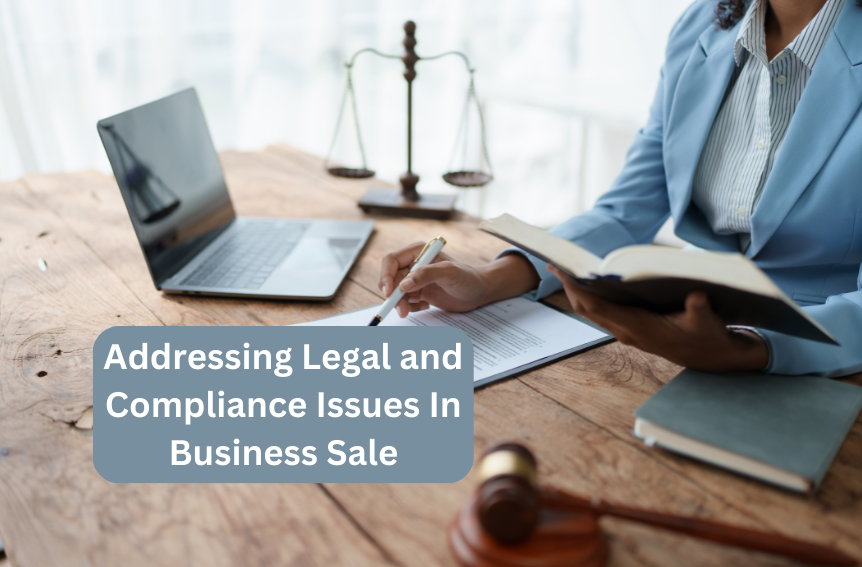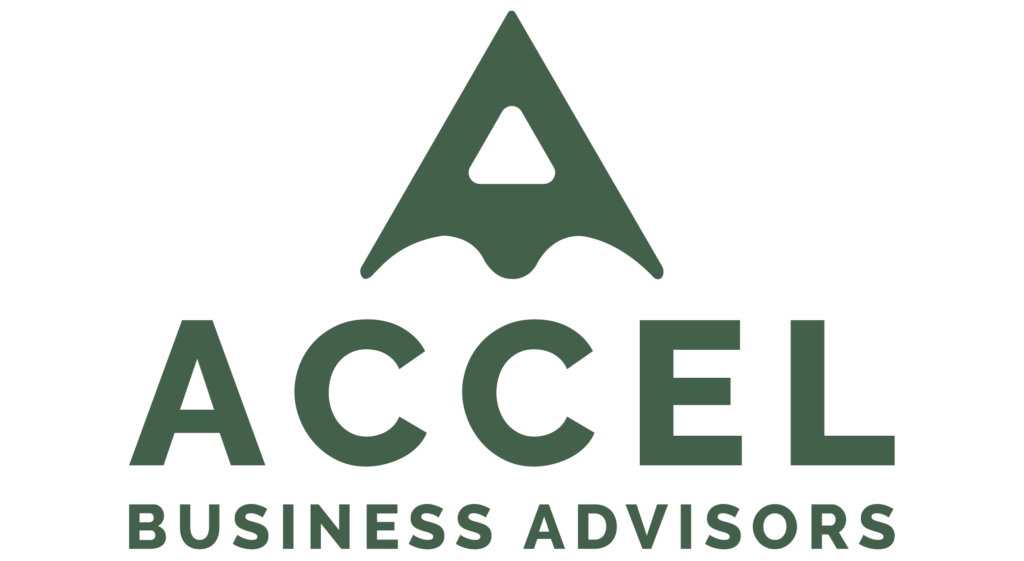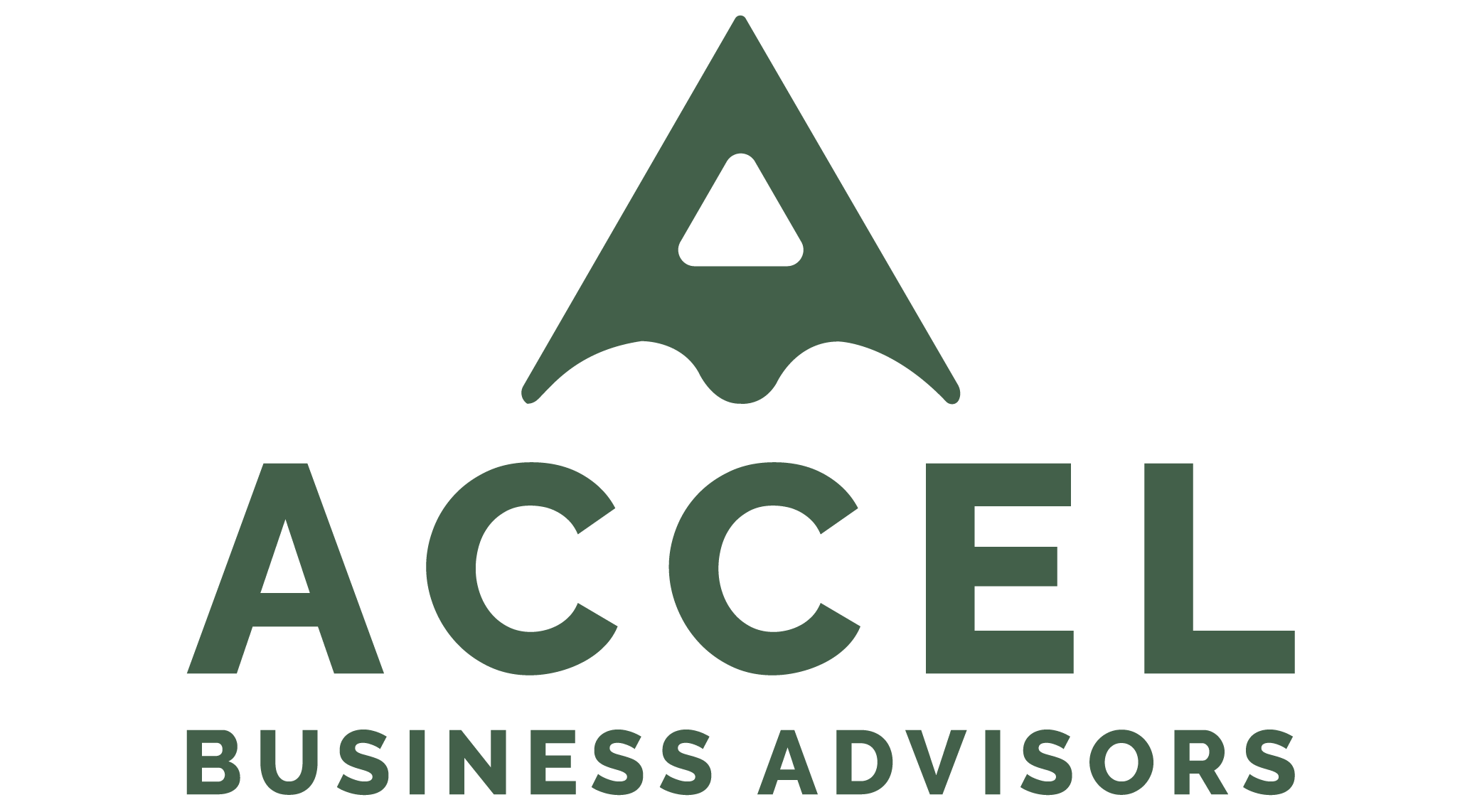Understanding the SBA’s New Citizenship Requirements and Their Impact on Business Owners

The SBA’s recent implementation of new citizenship regulations in March this year has flown under the radar amidst the buzz surrounding topics like DOGE and tariffs. Nevertheless, these updated rules carry significant implications for small business owners. Whether you’re navigating ownership structure, contemplating the sale of your business, or gearing up to seek an SBA loan, this information is crucial. Discover the potential impact of these policy revisions on your future decisions and delve into practical tactics to proactively navigate these shifts.
How Small Businesses Can Stay Competitive – and Valuable – During a Tariff War

Tariff wars aren’t just a concern for policymakers—they’re reshaping the landscape for small business owners worldwide. Rising costs, disrupted supply chains, and shifting customer expectations pose new challenges—but also fresh opportunities for those who adapt strategically. In this blog, we dive into actionable strategies for maintaining competitiveness and boosting long-term business value, even amid economic uncertainty. Whether you’re looking to safeguard profitability, refine pricing strategies, or future-proof your operations, this guide will help you turn obstacles into advantages.
How to Sell Your Business in Uncertain Economic Times — And Still Win

To sell or not to sell? Is that the question you are wondering about your business in such a turbulent economy? Who can time the market? Discover how to prepare your business, attract serious buyers, and maximize your value in challenging market conditions. Whether you’re contemplating selling or just curious about navigating economic headwinds, this edition has the insights you need to win big.
Addressing Legal and Compliance Issues Before Listing Your Business for Sale

Navigating the legal and compliance aspects of preparing your business for sale might be the most daunting and critical part of the preparation work. Addressing these matters thoroughly before listing can help avoid delays, lost opportunities, or legal complications. We put a comprehensive list of legal and compliance issues to consider in this blog. Read the blog to learn how to identify and eliminate potential roadblocks before the sale.
The Hidden Dangers in Business Valuation: What You Need to Know

Whether you’re planning for retirement, dealing with a major life change, or gearing up for a sale, understanding your business’s true value is essential. Learn why relying solely on your CPA might not be enough, the risks of misleading comparisons, and the importance of objectivity in valuations. Don’t miss out on these valuable insights—read the full newsletter now!
Your Guide to Business Exit: 8 Ways to Sell or Transition Your Company

Ready to transition your business but unsure where to start? This blog breaks down the different exit strategies you need to know. From selling to individual buyers to merging with strategic partners, we cover it all. Dive into the details and discover the best path for your business’s future. Don’t miss out—read the full article now!
What is FinCEN’s Beneficial Ownership Information (BOI) Reporting?

Starting January 1, 2024, all U.S. and foreign entities doing business in the US, with a few exceptions, must report beneficial ownership details to FinCEN to enhance transparency and combat illicit activities. Compliance is crucial for business operations and legal adherence, especially in mergers and acquisitions.
Why Should Small Business Owners Consider Selling?

Are you a small business owner evaluating your venture’s future? Before deciding to wind down, consider the significant value your business holds. Selling can maximize returns during peak market conditions, reduce risks, and open new opportunities. Whether for personal reasons, retirement, or growth, the decision to sell is complex. Explore the reasons to sell and secure your financial future. Read on to make an informed choice!
Why Hiring a Business Broker is Vital for a Successful Sale

Selling a business is a complex journey that requires careful planning and expert guidance. Hiring a professional business broker can be invaluable. With their broad network and streamlined process, they significantly improve the chances of a successful sale. Discover how partnering with a business broker can help you achieve the best outcome for your legacy.
What Makes a Business Attractive to Buyers

Curious about what makes a business irresistible to buyers? Discover the key elements that can transform your business into a hot commodity on the market. From strong financials to a loyal customer base, learn how to enhance your business’s appeal and secure a profitable sale.
Finding the Right Buyer

For many businesses, interest from potential buyers can start coming in within weeks. Some deals attract substantial interest very quickly. For instance, we recently listed a successful sign manufacturing company and received interest from 40 buyers within 4 weeks, resulting in 4 full-price offers within 8 weeks. However, finding the “right” buyer can take longer for some businesses. One of the key services provided by Accel Business Advisors is identifying high-potential buyers. Before a prospective buyer meets the business owner, there are often several calls and meetings with the broker to ensure a good fit. The Process By following these steps, you can navigate the complexities of finding and securing the right buyer for your business. To schedule a free consultation with your local business broker in San Jose, CA, please email us at [email protected].
Planning Your Exit Strategy: A Guide for Business Owners

In the last couple of blogs, we covered the essential steps involved in selling your business and how to prepare for the sale. From assessing the value of your business to understanding the sale process, we’velaid the groundwork for a successful transition. Now, as you move forward, it’s time to focus on one of the most critical elements: developing a comprehensive exit strategy. Business owners, planning your exit strategy is one of the most important steps you can take to ensure a smooth and successful transition. Whether you’re preparing to retire, pursue a new venture, or simply realize the value of your business, a well-crafted exit strategy is key. Here’s how you can start preparing.
What is My Business Value?

Valuing your business accurately is crucial whether you’re planning to sell, attract investors, or simply want to understand its true worth. One of the most effective ways to do this is by using comparable data, or “comps.” This method involves comparing your business to similar ones that have recently been sold. Here’s a simple, step-by-step guide to help you get started with valuing your business, and why working with our team of business advisors can make the process easier and more effective: 1. Understand the Basics of Comparable Data “Comps” involves analyzing the sale prices, cash flows, revenues and other attributes of businesses similar to yours. Think of it like how a real estate agent determines the value of a house by comparing it to similar homes that have recently sold in the same neighborhood. Our expert team can help you identify the best set of comps that closely match your business in size, industry, and financial performance—saving you time and ensuring you get a fair, accurate valuation. 2. Gather Relevant Data The next step is gathering data on businesses that have recently sold. You can find this information through business brokers, industry reports, or online marketplaces like BizBuySell. However, sorting through and analyzing this data can be overwhelming on your own. That’s where we come in. We have access to exclusive data sources and industry insights that can help pinpoint the most relevant comps for your business. We’ll take care of the research so you don’t have to. 3. Analyze the Data Once you have the right data, it’s time to analyze it to spot trends and patterns. Understanding the multiples used in your industry, such as Price-to-Earnings (P/E) ratios or EBITDA/SDE multiples, is key. However, analyzing this data accurately requires expertise. With our experience, we’ll not only identify the best benchmarks but also interpret the data in a way that makes sense for your business. We make sure you understand the numbers behind your valuation and what they mean for your sale. 4. Apply the Multiples to Your Business Now it’s time to apply the identified multiples to your business’s financials to estimate its value. For example, if similar businesses sold for 3 times their annual earnings, and your business has earnings of $500,000, your estimated business value would be $1.5 million. But here’s the thing: your business is unique. Factors like growth potential, customer loyalty, and brand strength can impact its value. Our team will help you adjust for these factors and provide a valuation that reflects the true worth of your business. 5. Adjust for Unique Factors Every business has its unique strengths, and we’ll make sure those are reflected in your valuation. Whether it’s the potential for growth, the loyalty of your customer base, or the strength of your brand, we’ll take these factors into account and adjust the valuation accordingly. Our team will guide you through these adjustments and help ensure that your business is positioned in the best light for potential buyers. Why Choose Us? Valuing and selling a business can be complicated, but it doesn’t have to be. While using comparable data is an excellent starting point, working with a professional business brokerage firm like ours takes the guesswork out of the process. We’ve helped thousands of sellers like you achieve successful sales, using a comprehensive, data-driven approach that takes all relevant factors into account. By partnering with us, you get the benefit of: Let us put our expertise to work for you. Click here to schedule a free consultation with us, and let’s start the conversation about how we can help you value, market, and sell your business with confidence.
When and How to Prepare Your Business for Sale

Timing is crucial when preparing your business for sale. Ideally, you should start preparing your business for sale at least two to three years in advance to optimize its appeal to buyers. However, be ready for unexpected issues that might require a quicker sale. Learn the key steps to ensure a successful sale.
Pros and Cons of Investment in Business

Investing in businesses vs investing in real estate is often a decision that investors must weigh in. Of course, each investment has its distinct advantages and disadvantages. While investments in real estate have more predictable return and less owner involvement, investments in business are certainly for a special type of people – people with vision and fortitude. As business brokers, we see many first-time investors in businesses. We hope this blog will help these investors decide whether investing in business is the right decision. Below are some pros and cons people should consider when investing in business. If you are more attracted to the pro attributes and can overcome some of the negativities along the way, then investing in business will be a rewarding lifetime journey for you. Pros: Higher Potential Returns: While riskier, the potential for higher returns in business investments is significant, especially with successful ventures. This high reward potential is a strong attraction for many investors. Scalability: Businesses can scale and grow much faster than real estate investments, providing exponential growth opportunities that appeal to investors looking for rapid expansion. Innovation and Personal Fulfillment: Investing in innovative businesses allows investors to be part of groundbreaking projects and industries, offering a sense of purpose and fulfillment that is not typically found in real estate investments. Liquidity: Businesses, especially publicly traded ones, offer more liquidity compared to real estate, allowing investors to exit their investments more easily when needed. Diversification: Businesses provide opportunities to diversify across different sectors, reducing the risk associated with investing in a single asset class. This diversification is a key strategy for risk management. Control and Influence: Investors in businesses, particularly those holding significant shares, often have a say in the company’s direction and strategy, providing more engagement and influence compared to real estate investments. Cons: Higher Risk: Many businesses fail, especially startups, which can lead to a total loss of investment. This high risk is a significant factor to consider. This is also why investing in existing businesses is a great option for first-time business investors. Time and Expertise: It requires significant time, effort, and expertise to evaluate and manage business investments effectively, which can be a barrier for some investors. Market Volatility: Business values can be highly volatile, influenced by market conditions, competition, and other external factors. Investment in businesses is not meant for a quick return on investment. Generally business investments require the owners’ long-term dedication and hard work to increase the value of the business. Once the business can show a stable revenue and cash flow, there is no lack of suitors of the business. Regulatory and Legal Issues: Businesses are subject to various regulations and legal issues, which can be complex and costly. Investment in businesses requires more active involvement with the industry and society. The owners need to have a curious mind and stay sensitive to new regulations and technologies that many impact the business. This is also what makes the investment in businesses a lot more interesting than the investment in real estate. In summary, while both investment types have their benefits and drawbacks, some investors find business investments more attractive due to the higher potential returns, scalability, and active involvement and influence in the business operations. If you would like more information about investing in business, contact your local business broker in San Jose at [email protected].
Fees and Costs for Selling Your Business

Fees and Costs for Selling Your Business Selling a business involves more than just finding a buyer. As a business seller, you’ll encounter a variety of costs at the closing table that can significantly impact your net proceeds. Many business owners overlook these expenses and are often surprised by the final check they receive. To avoid unexpected financial pitfalls, here’s a breakdown of the typical costs you can expect when selling your business. 1. Taxes Taxes are likely the largest cost you’ll face when selling your business. The sale will trigger several tax implications, and understanding how much you’ll owe is critical for estimating your net sale proceeds. Minimizing your tax liability is essential, and this is where a business advisor can be invaluable. Although we do not provide tax advice, we can connect sellers with qualified tax advisors. With their expertise, a tax advisor or accountant can help you structure the sale in a tax-efficient manner. Additionally, if you’re selling real estate along with your business, you may need to account for real estate transfer taxes, depending on your location. 2. Business Broker Fee For many sellers, the business broker fee is the second-largest expense. For smaller transactions, commissions typically range from 10% to 12% of the purchase price, or a fixed amount agreed upon with the broker. For larger transactions, commissions are often tiered, with varying percentages depending on the size of the deal. A good business advisor can help you navigate the process and ensure you get the most value from the transaction. 3. Attorney Fees Attorney fees can vary based on factors such as the complexity of the deal, whether real estate is included, and if a franchise agreement is involved. Attorneys typically charge for their time and expertise, so the more intricate the transaction, the higher the costs. Some attorneys charge hourly, while others may offer a fixed fee based on an estimated time commitment. A trusted business advisor can recommend experienced attorneys and help ensure that your legal interests are protected during the sale. 4. Accountant Fees An experienced accountant plays a critical role in assessing the tax implications of the sale. Like attorneys, accountants typically charge an hourly fee, but some may offer fixed-price options depending on the scope of services provided. Both accountants and attorneys are essential in ensuring that all legal and tax matters are resolved before the sale is finalized. A business advisor can help you find the right professionals to work with, ensuring that everything runs smoothly. 5. Transfer Fees If you’re selling a franchise, there’s likely a “transfer fee” outlined in your franchise agreement. This fee covers the franchisor’s costs for evaluating the buyer and preparing the necessary documents. Be sure to account for this when determining your sale price and calculating your net proceeds. A business advisor with experience in franchise sales can help you navigate these fees and ensure all contractual obligations are met. 6. Lease-Associated Fees Some leases include an assignment fee triggered when you transfer the lease to a new buyer. This fee covers the landlord’s expenses for legal reviews and preparing the lease assignment. Additionally, certain leases require tenants to pay a percentage of the sale price or a fixed fee to the landlord upon selling the business. While this was once rare, such clauses are becoming more common, so reviewing your lease agreement is essential. A business advisor can help you understand these clauses and how they might affect your sale proceeds. 7. Debt Prepayment Penalty If your business or property has any outstanding mortgages, credit lines, or loans, you may face a prepayment penalty upon the sale. These penalties can be substantial, so it’s important to review your loan agreement again and factor them into your sale cost if needed. In some cases, you may be able to avoid the penalty by assigning the debt to the buyer, but that will be subject to the lender’s approval of the buyer. 8. Escrow Fee & Closing Costs Escrow fees are another important consideration when selling your business. Escrow is a neutral third party that manages the transaction, ensuring that both the buyer and seller meet all conditions of the sale before the funds are released. Typically, escrow fees are shared between the buyer and seller, but the exact division can vary depending on the agreement. These fees are usually calculated as a percentage of the total sale price or based on a flat fee structure. The escrow company will also charge for additional services, such as document preparation, wire transfers, or handling any holdback funds. It’s essential to factor in these fees when estimating your net proceeds from the sale. Final Thoughts These are the primary costs associated with selling your business, but there may be additional fees and penalties depending on your specific transaction. Understanding these obligations before listing your business and signing contracts is crucial. If you fail to account for these expenses, you could not only miss out on potential profits but could also end up paying out of pocket to close the deal. Working with a business advisor who understands the complexities of selling a business will help ensure you’re prepared for these costs. By proactively addressing these expenses, you can achieve a smoother, more successful sale. To schedule a free consultation with your local business advisor in California, contact us here.
Prepare a business for sale

Elevating Your Business Sale Preparation with Accel Business Advisors in 2024 If you ever think about selling the business you have built and run for so many years, it is important you have a clear plan and a good advisor by your side. Preparing a business for sale is a multifaceted process that demands meticulous attention to detail and strategic planning. Accel Business Advisors, renowned for our expertise in facilitating business sales, play an instrumental role in enhancing the readiness and attractiveness of a business on the market. Here’s how we can elevate the preparation of a business for sale: 1. Financial Preparation and Analysis: We assist in organizing and analyzing financial records meticulously. Our expertise helps in presenting clear and comprehensive financial documentation, including profit and loss statements, balance sheets, and cash flow reports, crucial for instilling confidence in potential buyers. 2. Operational Optimization and Documentation: Our guidance extends to optimizing operational efficiencies and documenting key processes. With Sunbelt’s support, businesses can streamline operations and document essential procedures, showcasing a well-structured and sustainable operation attractive to potential buyers. 3. Strengthening Business Relationships: We emphasize the importance of nurturing customer and supplier relationships. We bring in experts who can provide insights on strategies to enhance customer loyalty and fortify supplier connections, contributing significantly to the business’s perceived value during the sale. 4. Enhanced Presentation and Marketing: Our guidance extends to the visual appeal and marketing materials of the business. Accel advisors help ensure that the business’s physical appearance and marketing materials accurately represent its strengths and potential, creating an impactful first impression on potential buyers. 5. Professional Guidance and Due Diligence: Engaging Accel Business Advisors means tapping into our wealth of experience and expertise. Our team of professionals, including entrepreneurs from a wide range of industries who owned businesses before, collaborate to conduct comprehensive pre-sale due diligence, identifying and addressing any potential issues before we proceed with the sale process. In summary, Accel Business Advisors bring a wealth of specialized knowledge and industry experience to the table, significantly enhancing a business’s readiness for sale. Our meticulous approach to financial organization, operational streamlining, relationship strengthening, and professional guidance elevates the preparation process, positioning businesses for a successful and profitable sale. By leveraging the expertise of Accel Business Advisors, business owners can navigate the complexities of preparing their business for sale with confidence, knowing they have a dedicated team working towards maximizing the value and attractiveness of their business on the market.
The Process of Selling a Business

Selling a business is a big decision and a complex process. While the specifics can vary based on the business and the broker involved, I want to share a general overview of what the process typically looks like. Here’s how I guide my clients through the journey of selling their businesses: 1. Initial Meeting: Setting the Foundation The process starts with a one-on-one meeting between me and the business owner. During this meeting, I learn about the business, the owner’s reasons for selling, and what their goals are for the future. It’s also a time to discuss whether the owner is emotionally and mentally prepared for the sale and what happens afterward. I make sure the owner is clear on what to expect and is emotionally ready for the transition. 2. Valuation Discussion: Understanding the Business’s Worth The next step is discussing the value of the business. I may provide an Opinion of Value or recommend a formal Business Valuation. This helps set realistic expectations for the sale price and gives both the owner and potential buyers a clear understanding of the business’s market value. We have discussed how a business is valued in our last episode. You may check out here for more details. 3. Engagement Letter: Formalizing the Relationship Once the business owner decides to move forward and we agree on an expected value, we formalize the process by signing a representation agreement. This document outlines my role as a broker and the terms of our relationship moving forward. 4. Preparation of the Confidential Information Memorandum (CIM) A critical part of the sales process is the preparation of a Confidential Information Memorandum (CIM). This document provides a detailed overview of the business and answers the majority of questions potential buyers will have. I work closely with the business owner to ensure this document is accurate and comprehensive before sharing it with any buyers. 5. Marketing the Business: Reaching the Right Buyers Once the CIM is approved, I begin the marketing process. The business is listed on websites like BizBuySell, and I also tap into my network and database of potential buyers. In addition, I may reach out to strategic buyers, such as those in similar industries or Private Equity Groups and family offices, who might be interested in acquiring the business. 6. Finding the Right Buyer: Screening and Matching Within a few weeks, I typically start to see interest from potential buyers. Some businesses attract more attention than others, but I’m focused on finding the right fit. I screen buyers, have initial conversations with them, and only introduce the most serious and capable candidates to the business owner. Buyers are required to sign an NDA before they can receive any confidential information on the business. 7. Buyer-Seller Meetings: Negotiating the Terms Once a buyer expresses serious interest, we arrange a meeting between the buyer and the seller. During the meeting, it is like a first date where the buyer can ask questions about the business and at the same time the seller can ask the buyer questions to assess if this is the right person who can take over the business. After the initial meeting, if the buyer is still interested, he or she will submit an offer or a letter of interest (LOI). This outlines the proposed price, payment terms, contingencies, and other important details. It’s an exciting moment as we move closer to finalizing the sale. 8. Due Diligence and Financing: Verifying the Deal Once an offer is accepted, the due diligence phase begins. This is where the buyer verifies the financials, operations, and legal standing of the business. If financing is involved, this phase can take 2-3 months while the lender can conduct its underwriting. During this time, I help facilitate the process by ensuring everything is in order, introducing the right legal and tax advisors, and helping the buyer secure the necessary financing. 9. Closing and Transition: Finalizing the Sale The final phase is the closing and transition. This is where we finalize all legal and financial documents, such as the purchase agreement and closing statements, and transferring essential operational information, including access codes, client lists, email accounts, phone numbers, website and supplier contracts. The seller often stays involved for a short period after the sale to help with training and transition, ensuring a smooth handover of the business. Effective communication is essential during this phase to ensure the business continues to thrive under new ownership. Takeaways: A Smooth and Successful Sale Selling a business is a multi-step process that typically takes 6-12 months, but every stage—whether it’s valuation, finding the right buyer, or completing due diligence—requires attention to detail. Having an experienced business broker by your side can make all the difference in ensuring a smooth and successful sale. If you’re thinking about selling your business in California, please schedule a free consultation with me here.
Why Many Business Owners Miss Their Exit Goals

Many business owners envision selling their companies within the next five years, but the reality is that many won’t achieve this goal. In fact, many will be ill-prepared to start the sale process when their target exit date arrives. The root cause for these missed targets often lies in owners’ failure to recognize and address the top eight deal killers. Deal killers are conditions that can destroy your company’s salability if left unaddressed until you’re ready to sell. Here’s a look at the top eight and how to overcome them: 1. Underestimating Financial Needs Post-Exit Many owners mistakenly believe they can sell their business today and meet their financial independence goals. The truth is, they often underestimate how much money they will need after exiting and overestimate the value of their business. How to avoid it: Engage in pre-sale planning. Get a professional business valuation, and work with a tax advisor to minimize taxes and fees. A proactive approach with your deal team will help you avoid a rushed or damaging sale process. 2. Misaligning Value Expectations with Market Realities Failing to reconcile your expectations of the business’s value with what the market is willing to pay can lead to disappointment and missed opportunities. How to avoid it: Prior to listing your business for sale, ensure your expectations align with current market conditions. Getting a solid estimate of your company’s worth from a broker or investment banker will provide clarity and help you set realistic expectations. 3. Focusing Solely on Sale Price Many owners focus only on the top-line sale price, forgetting about the net proceeds after taxes, fees, and transaction costs. This narrow focus can cloud judgment and lead to suboptimal outcomes. How to avoid it: Take a holistic view of the sale process. Work with a team of professionals to factor in all costs, taxes, and other considerations to ensure that the sale provides you with the financial independence you seek. 4. Failing to Retain Key Employees Retaining your company’s most valuable asset—your key employees—is essential for a successful sale. Buyers view these employees as critical to the company’s future, and if they leave, it can hurt the deal. How to avoid it: Implement retention strategies like non-qualified deferred compensation plans, stay-bonus plans, and non-solicitation agreements. These strategies will ensure that your key employees remain on board after the sale, protecting your company’s value. 5. Believing You Can Negotiate Alone Trying to sell your business on your own without the help of experts is risky. Buyers often have a team of professionals working to get the best deal for them, leaving the unprepared seller at a disadvantage. How to avoid it: Don’t go it alone. Build a strong deal team—experts who can help you navigate the complexities of a business sale. The right team can more than pay for itself by maximizing your sale price and terms. 6. Skipping Pre-Sale Due Diligence While pre-sale due diligence can seem like an unnecessary expense, skipping it can lead to devastating consequences. Undiscovered issues within the company may become deal breakers, lowering your business’s value or even killing the sale altogether. How to avoid it: Conduct thorough pre-sale due diligence with your team of advisors. Identifying potential problems before the buyer does can save you time, money, and lost opportunities. 7. Letting Emotions Cloud Your Decision Selling a business you’ve built can stir up strong emotions, leading to second thoughts or cold feet. Seller’s remorse is a common issue, especially late in the sale process. How to avoid it: Have open conversations with your advisors, family, and trusted individuals about your post-exit goals. It’s important to visualize life after the sale and ensure that you’re ready emotionally and mentally to move on. Preventing Deal Killers Before They Derail Your Exit These deal killers are avoidable. With careful planning, proactive management, and the right team of advisors, you can identify and eliminate these obstacles before they impact your sale. Most business owners lack the time and experience to address these issues on their own, so working with experienced, planning-based advisors is crucial to a successful transition. By tackling these challenges head-on, you’ll increase your chances of a smooth, profitable exit. For more guidance and to connect with an experienced business advisor, contact us at [email protected]. We can help you navigate the complex business sale planning and ensure you make informed decisions about your business’s future.
Growing Through Mergers & Acquisitions

10 Questions to Ask Every Acquisition Target 70% to 90% of all acquisitions fail to achieve the results acquirers want. Why? Most often, failure is directly tied to the integration plan and frequently, to diligence that wasn’t quite as effective as it could be. According to a 2015 industry study by McKinsey & Company, companies with the best M&A results have strong capabilities in post-close integration. We’ve found that high performing M&A firms use the diligence exercise to gain critical insight into the target company, its management, key employees, its culture, and its customer relationships. They take a hard look at not only the financial numbers, but at the intangible assets that drive a company’s success plan. Most importantly, they have tools and processes to statistically document the value of the intangible and help them see into the future. They start building relationships with the potential target throughout the due diligence process, months before close. In every case, the expectation post-close is that the value of the deal will increase. So how do you predict future success? Here are ten questions our highest performing clients ask every potential acquisition: 1. How closely aligned is the target company to its customers, and specifically to customers’ needs and expectations? 2. Who are the target company’s best customers (those who buy the most)? How do those customers perceive the company’s strengths and areas for improvement? 3. What are the industry’s key attributes, why a customer selects one company to do business with over another — and how does the target company perform against those attributes? 4. What is the customer concentration? Is it good for the long-term? How much of the business’ revenues are controlled by only a select few? Is there still more growth to be had from these few customers? If so, how? 5. What is the company’s share of wallet by customer (not just market share)? 6. What are customers’ perspectives on industry competition and how the target company compares? 7. What unmet or underserved needs do customers have, not only from the target company but from the industry? Where are the opportunities that have not been capitalized on? 8. What is the cultural fit (if a bolt-on) or the cultural opportunity (if structuring a new platform)? How hard will it be for existing management and staff to execute a future roadmap that is both operationally-oriented and customer-centric? 9. What are the priorities and action plan post-close? (The acquirer and acquired should collaborate on this plan before the deal is closed.) 10. Where are the starting points? This enables acquirers to determine what the impact the acquisition has on overall performance. To do this, an acquirer should measure not only the synergistic savings and revenue Increases, but also how much improvement there is in customer loyalty, satisfaction, and share of wallet.

